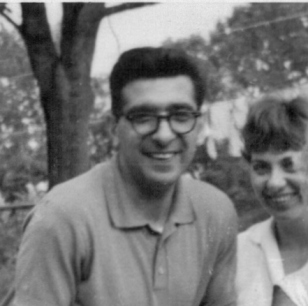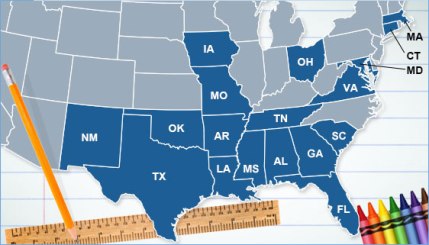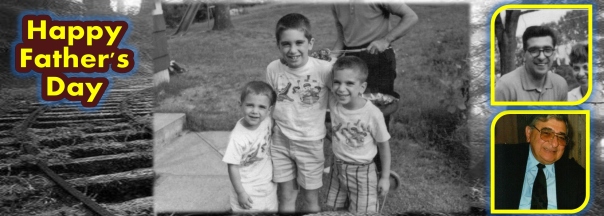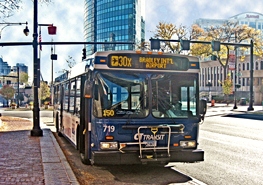
“Nobody will ever deprive the American people of the right to vote except the American people themselves and the only way they could do this is by not voting.” Franklin D. Roosevelt
As election day approaches I start to get more and more excited because I love to VOTE.
I grew up in a house filled with politics and lively discussions about the issues facing our community and our nation. My father was a city council member for many years; and my mother was appointed by the mayor of our city to serve on the city’s Housing Authority,  of which she soon became the chair for more than 15 years. In addition to my parents’ direct service as public officials, one elected and one appointed, we were involved in several political campaigns. We always had candidates’ signs on our lawn, we always worked our party’s “booth” at the various town gatherings and festivals, and we always worked on election day. My parents wrote letters to editor, called their elected officials, spoke at open forums and attended meeting regularly. My mother was asked to leave a few open “public” meetings, once even by the mayor. Of course she challenged them by filing a complaint with FOI (Freedom of Information) — and BTW she won — resulting in the mayor and city manager having to personally pay a fine.
of which she soon became the chair for more than 15 years. In addition to my parents’ direct service as public officials, one elected and one appointed, we were involved in several political campaigns. We always had candidates’ signs on our lawn, we always worked our party’s “booth” at the various town gatherings and festivals, and we always worked on election day. My parents wrote letters to editor, called their elected officials, spoke at open forums and attended meeting regularly. My mother was asked to leave a few open “public” meetings, once even by the mayor. Of course she challenged them by filing a complaint with FOI (Freedom of Information) — and BTW she won — resulting in the mayor and city manager having to personally pay a fine.
As a teenager on election day, I made phone calls to remind people to vote, drove people to the polls to vote, collected data from polling sites for the party headquarters, and even worked for a national TV network to survey voters and call in polling information. I attended several post election receptions — and for the record, I prefer partying with the winners. That was the fun part. It wasn’t so much fun when my father voted against the teachers’ contract triggering a teachers’ strike. The head of the teachers’ union was my calculus teacher, and he did not hesitate to make comments about my father in class. My brother got the same treatment from his Italian teacher who was also his soccer coach. I laughed it off; my brother got angry and quit soccer; and my sister was too young to understand. My parents eventually transferred by sister to catholic school. That was not fun — but it was a great learning experience and made me even more passionate. When I attended college, I joined a political student organization and continued to work on campaigns and work on election day. My involvement and interest in politics, campaigns and elections never waned.
“Thinking is not to agree or disagree. That’s voting.” Robert Frost
Then I began my career in higher education and chose to put my personal political beliefs aside. I say “chose” because it was not a hard/fast policy. I decided that if I was going to “serve all students” I had to be nonpartisan. Being nonpartisan meant that every student leader and every student organization could count on me to serve them well — regardless of their politics, regardless of their beliefs, regardless of their religion, regardless of their attitude. I encouraged political engagement; I encouraged political rallies and protests (and counter-protests); and I assisted in candidate and surrogate visits (including three Presidents, several US Senators, and a few Governors). Everyone knew that I would work hard to support them and make their dreams come true — no matter their agenda. They were important, they were valued, and they were a vital part of our campus and our nation. I pushed them to exercise ALL of their rights and fought for them when others objected. What a great job it was. I worked with a wide variety of student organizations including the following:
- Amnesty International
- College Democrats
- College Republicans
- Conservative Action Network
- Feminists
- Green — Anti-Coal
- LGBTQ Student Alliance
- Libertarian Socialists
- Libertarians
- Marxists
- Military
- Non-Theists (formerly known as Atheists)
- NORML – National Organization for the Reform of Marijuana Laws
- NOW – National Organization for Women
- Occupy Wall Street
- PETA – People for the Ethical Treatment of Animals
- PIRG – Public Interest Research Group
- Planned Parenthood
- Pro-Life
- Pro-Peace
- PUGWASH
- Socialists
- Student Government
- Students Against Sweatshops
- War on Hunger
Since I was unable to put a sign on my lawn, wear a button on my lapel, support a candidate, openly debate political issues, or work for my party on election day — encouraging students to care about politics is what kept me going. During this time I grew as a professional and as a citizen when I was truly nonpartisan — when I was working hard for ALL student leaders – ALL student organizations. Today, I am a little bit more open about which candidates I support but still hesitate because of all of those years keeping it under wraps. Those year did however help me develop a much greater respect for anyone who gets involved in any part of the democratic process. After all how much fun would it be if everyone agreed with me? Not too, that’s how much!
“In reality, there is no such thing as not voting: you either vote by voting, or you vote by staying home and tacitly doubling the value of some Diehard’s vote.” David Foster Wallace

I love voting. I am a bit of a nerd when it comes to election day though. On election day, I will get up early and put out our USA flag. I wear only red, white and blue — and have a special “election day” tie and a wide assortment of flag lapel pins. Before I was eligible to vote, I couldn’t wait until the day came that I could vote — especially in a presidential election. My visit time was as exciting as I imagined. Before I vote — I study, I read, I listen, I debate — until I am ready. I take this process very seriously. I usually vote the straight party ticket — but I never pull the straight-party lever. I enjoy pushing a lever for each and every candidate — and vote on every question and referendum. I also don’t vote early – even though I passionately support early voting — and anything that enables more citizens to vote. I am afraid that if I don’t vote on the actual election DAY it won’t feel the same – and I am not willing to take that risk. For me it is all about getting prepared, waiting and anticipating, and getting more and more excited — and voting on election day, the second Tuesday in November (not before). If a candidate visits our city, I am there whether or not I agree with their platform. To name a few, I’ve attended speeches or debates with Jerry Brown, Mitch Daniels, Chris Dodd, Ross Perot, Gerald Ford, Henry Kissinger, Bill Clinton, Barack Obama, Richard Lugar, Lowell Weicker, Joseph Lieberman, Evan Bayh, G. Gordon Liddy, Bill Bradley, Mario Cuomo, and Colin Powell. I was even involved in the first ever Rock the Vote campaign in 1992.
“Always vote for principle, though you may vote alone, and you may cherish the sweetest reflection that your vote is never lost.” John Quincy Adams
 To me it is a privilege and honor. To me it is a duty and an obligation. I know it sounds corny, but when I am voting I feel very patriotic. And I wear my “I Voted” sticker with great pride. Voting on election day gives me such joy. I love democracy and I love the United States of America. I don’t take my citizenship for granted — and know how lucky I am. I can’t even comprehend US citizens who are eligible to vote who DON’T. I just don’t get it. I also believe if I vote then I will have a right to complain later. And those who don’t vote; well, you know – how do they have the nerve to complain? The people who really baffle me are the self-proclaimed “undecided” voters. How can this be possible? Who are these people? Are they messing with us — or just in need of attention?
To me it is a privilege and honor. To me it is a duty and an obligation. I know it sounds corny, but when I am voting I feel very patriotic. And I wear my “I Voted” sticker with great pride. Voting on election day gives me such joy. I love democracy and I love the United States of America. I don’t take my citizenship for granted — and know how lucky I am. I can’t even comprehend US citizens who are eligible to vote who DON’T. I just don’t get it. I also believe if I vote then I will have a right to complain later. And those who don’t vote; well, you know – how do they have the nerve to complain? The people who really baffle me are the self-proclaimed “undecided” voters. How can this be possible? Who are these people? Are they messing with us — or just in need of attention?
On Undecided Voters: “To put them in perspective, I think of being on an airplane. The flight attendant comes down the aisle with her food cart and, eventually, parks it beside my seat. ‘Can I interest you in the chicken?’ she asks. ‘Or would you prefer the platter of poop with bits of broken glass in it?’ To be undecided in this election is to pause for a moment and then ask how the chicken is cooked.” David Sedaris
Lastly, I don’t even acknowledge the argument by non-voters that “my one vote doesn’t count and doesn’t matter.” I truly don’t believe that and even if it were true — that would not stop me. I AM VOTING!
“Voting is the most precious right of every citizen, and we have a moral obligation to ensure the integrity of our voting process.” Hillary Clinton
I truly appreciate my parents for surrounding me and my siblings with politics and getting us involved in current issues and the needs of our community. They made it accessible and exciting. My mother (who is a few years past the age of legal retirement) still attends Housing Authority meetings and is an advocate for any tenant who needs her support. Our weekly phone conversations typically include some talk of the politics of the week. And nothing would stop her from voting — nothing!
“The best argument against democracy is a five-minute conversation with the average voter.” Winston Churchill
My obligation to my country and my parents is to VOTE. And now that I have two kids (12 and 14 years old) – I must keep up our  family tradition. A family tradition of caring, staying informed and getting involved — and being patriotic, loving our country and doing our duty as engaged citizens. Both of my kids, especially my oldest, get fired up as much as I do about politics. My oldest even watches political news shows with me — and get frustrated and laughs at the appropriate times. This is the greatest gift I can give to my parents…and my country. The next generation will have at least two kids who will VOTE and will become involved, good citizens — stepping up to serve their community, studying the issues, supporting candidates, putting signs on their lawns, and working on election day.
family tradition. A family tradition of caring, staying informed and getting involved — and being patriotic, loving our country and doing our duty as engaged citizens. Both of my kids, especially my oldest, get fired up as much as I do about politics. My oldest even watches political news shows with me — and get frustrated and laughs at the appropriate times. This is the greatest gift I can give to my parents…and my country. The next generation will have at least two kids who will VOTE and will become involved, good citizens — stepping up to serve their community, studying the issues, supporting candidates, putting signs on their lawns, and working on election day.
“Half of the American people have never read a newspaper. Half never voted for President. One hopes it is the same half.” Gore Vidal
I must admit — I am ready for the 2012 “campaigning” to end but I can’t wait to VOTE. My only complaint is that my time in the voting booth isn’t long enough. I believe in democracy – I believe in this country – and I believe in the strength and resilience of the generous and caring people of this great nation. I am an eternal optimist and have great hope – always. And when I VOTE – Inever feel more HOPE and hopefulness deep within my soul. This one act – VOTING – defines who I am as a US citizen. It is a beautiful and inspiring thing.
“A vote is like a rifle: its usefulness depends upon the character of the user.” Theodore Roosevelt
So, next Tuesday (and every second-Tuesday of November) — I will meet you at the Voting Center. Please – don’t forget to VOTE and bring a friend to VOTE too. We all matter — and our votes do count! If only for that wonderful feeling of patriotism — that knowledge that your vote is as important as anyone else’s — that sense of duty. Then, perhaps, you will LOVE to VOTE and get as excited to vote as I do. I am certain of it.
Have I mentioned — I LOVE TO VOTE!

{For more information on how to VOTE and get engaged — click HERE.}
“Stand beside her, and guide her | Thru the night with a light from above” – Irving Berlin
Read more stories about growing up in my family and our traditions, check out these PC Pop posts:
 As Father’s Day approaches — I once again have to accept the fact that I am not a “typical” dad. And my kids are used to explaining that our family is a bit “weird.”
As Father’s Day approaches — I once again have to accept the fact that I am not a “typical” dad. And my kids are used to explaining that our family is a bit “weird.” My male role models in my family were studs – but they were respectful of their partners; they were romantic; could cook and did often; and dressed very well. They hugged and kissed their kids every day, said I love you to their wives, and went shopping, did laundry, and made dinner. Of course roles in relationships were different in the 1950’s, 1960’s, and 1970’s – but I am a combination of their great traits and the expectations of modern times. Why then do the greeting card writers and marketing gurus still perpetuate these archaic, primitive, unenlightened behaviors featuring beer loving, Neanderthals, sloths, chauvinists who can’t cook and prefer hunting and fishing and golfing more than being with their family?
My male role models in my family were studs – but they were respectful of their partners; they were romantic; could cook and did often; and dressed very well. They hugged and kissed their kids every day, said I love you to their wives, and went shopping, did laundry, and made dinner. Of course roles in relationships were different in the 1950’s, 1960’s, and 1970’s – but I am a combination of their great traits and the expectations of modern times. Why then do the greeting card writers and marketing gurus still perpetuate these archaic, primitive, unenlightened behaviors featuring beer loving, Neanderthals, sloths, chauvinists who can’t cook and prefer hunting and fishing and golfing more than being with their family?







































